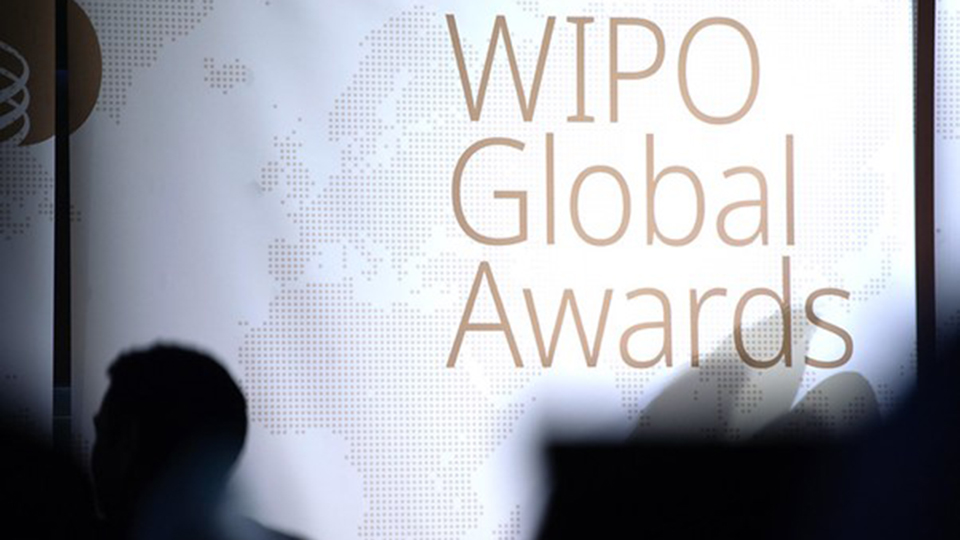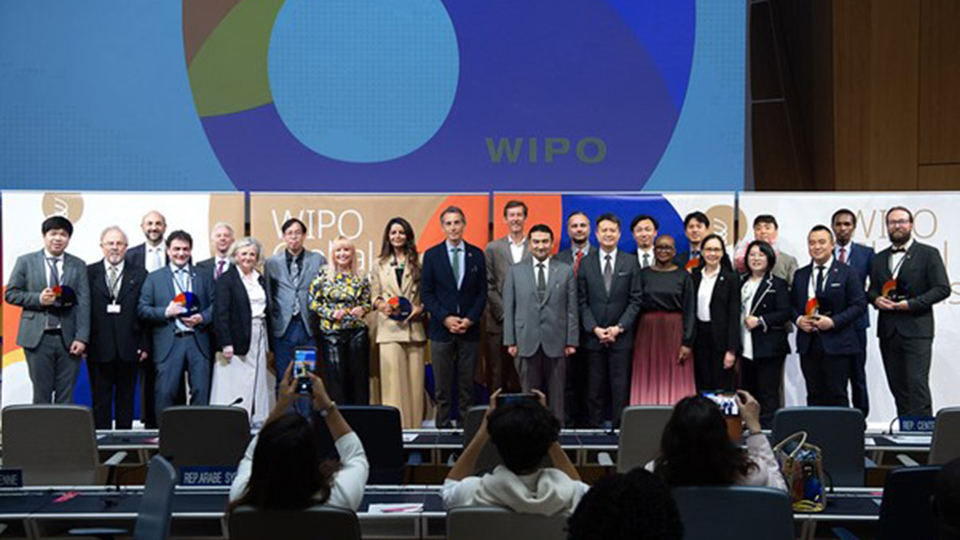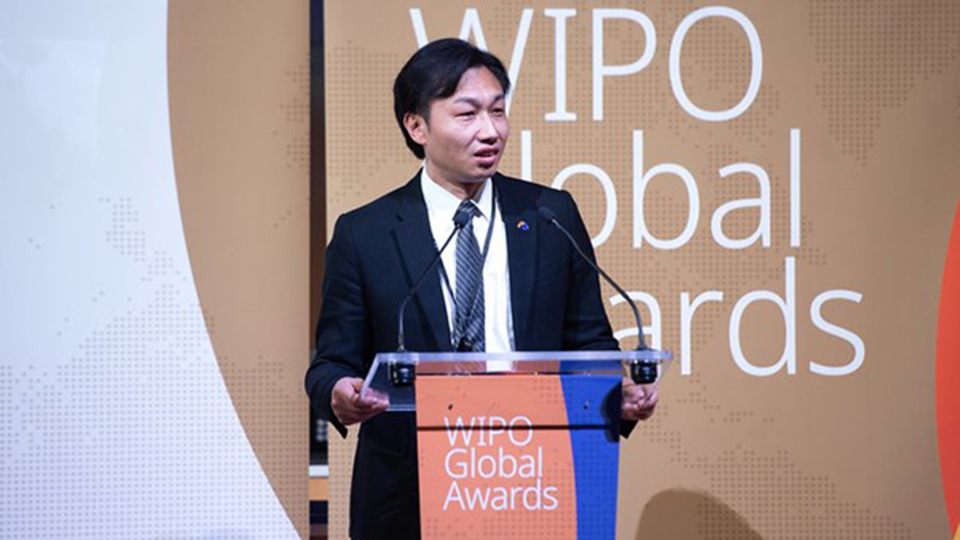Health-Tech Innovations Dominate the WIPO Global Awards
July 31, 2024
With a record number of health sector winners this year, the WIPO Global Awards underscore the growing importance of small enterprises and startups in driving impactful healthcare solutions worldwide by recognizing and supporting innovators who leverage IP-backed strategies.
The WIPO Global Awards
The World Intellectual Property Organization (WIPO) on held the third edition of the WIPO Global Awards, on 12 July 2024 spotlighting pioneering Small- and Medium-sized Enterprises (SMEs) and startups that leverage intellectual property (IP) for business success and social impact. This year, health technologies dominated the stage, with six of the nine winners focusing on the health sector. These winners were selected to be the best from a record 660+ applications this year from 107 countries.

WIPO Celebrates IP Savvy and Social Impact-Oriented SMEs
The WIPO Global Awards invite small businesses from around the world to present their innovations, offering winners tailored mentoring on IP commercialization, international promotion, networking opportunities in Geneva, as well as access to WIPO’s resources and advisory network.
The selection process for the awards focuses on strong IP management practices, which includes strategies for acquiring, protecting, and utilizing IP rights. Companies are also evaluated on their IP awareness and how their innovations contribute to sustainable development goals (SDGs). This ensures that grass roots innovators are not only IP savvy but are also dedicated to using IP in their strategy for commercial success, driving positive development outcomes.
A Surge in Healthcare Innovations
Applications from the health sector have been growing. This year alone, we received about 150 applications from medical innovators with a registered company and a clear IP strategy to drive their business. The prominence of health technology firms among the award entries and winners across all three editions underscores a strong emphasis on healthcare innovation within the SME and startup community. It also highlights the pressing global need for such solutions and the potential to transfer them to countries with demand for such solutions, with WIPO’s guidance enhancing these efforts.

IP support for Healthcare Innovations
This year’s winners from the health sector presented remarkable innovations, showcasing creativity and impact.
- Healinno Tech from China addresses the unmet demand for surgeries to treat enlarged prostrate. It has developed a surgical robot that uses precise stream of water to perform the surgery, reducing the need for manual surgeries. Healinno Tech has adopted a strategic approach to IP management by filing for patents in China and through the PCT system (i.e., under the Patent Cooperation Treaty), obtaining copyright and trademark registrations, and safeguarding its proprietary technology as trade secrets. It aims to focus on IP asset management, establish an IP monitoring mechanism, encourage continuous innovation and R&D, and strengthen cooperation with research institutes and universities. Additionally, it plans to amplify its licensing and technology transfer efforts.
- Argentina’s Laboratorios Química Luar specializes in the development of innovative pharmaceutical products such as an ibuprofen-based formula that can be nebulized in the form of a mist inhaled into lungs. It becomes particularly interesting for complex and underserved conditions such as COVID-19 and Cystic Fibrosis. The products are protected by patents granted in the United States, Europe and the PCT system. Química Luar follows strict IP and confidential information management practices in line with relevant standards from the International Organization for Standardization.
- Thailand’s Meticuly enhances patient outcomes with 3D-printed, AI-designed titanium bone implants tailored to individual anatomies, underpinned by IP protection. Meticuly’s IP portfolio includes a strategic mix of patents, trade secrets, trademarks, and copyrights, which has been instrumental in its expansion, market penetration and revenue generation. It has filed provisional patent applications in the United States, and PCT applications to extend protection globally. It regularly conducts Freedom to Operate (FTO) analyses and monitors the market for infringement and counterfeiting. It has also entered into licensing agreements with universities in Thailand, aiming to monetize its IP in less accessible markets.
- PONS Technology from Turkey provides accessible ultrasound imaging for rural areas, reducing pregnancy complications. In Nigerian villages, this technology lowered pregnancy complications from 45% to 25% in just one month. Its IP strategy rests on two pillars: “protection” and “collaboration”. “Protection” involves securing patents for its core innovations such as its patented image enhancement technology and AI-driven navigation system. “Collaboration” involves licensing opportunities and strategic partnerships, particularly in resource limiting settings. It is also focusing on monetizing its IP and securing IP bases financing.
- Kuwait’s ScansX revolutionizes brain injury diagnostics with a portable, AI-powered scanner, leveraging its patents and trademarks. ScansX is aiming to maximize its impact and revenue by licensing its IPs, collaborating with research institutions, hospitals, non-governmental organizations (NGOs) to accelerate development of its technologies, and securing patents in key international markets to protects its technology globally.
- Vivo Surgical from Singapore enhances field hospital surgical care with innovative, battery-powered medical devices, establishing a commercial presence in over 20 countries. It is the worldwide exclusive licensee of the patents for its two key products: a surgical lighting device and an endoscope robot. Additionally, Vivo Surgical co-developed a portable endoscope with two reputable hospitals and has filed a provisional patent for it. The company emphasizes its branding strategy by obtaining trademark registrations and including clear IP clauses in agreements with distributors addressing trademark use by them. These agreements also address the treatment of confidential information by the distributors.
These winners, representing developing countries across various regions, address a wide range of healthcare needs, including assistive care, diagnostics, surgical care, and the treatment of non-communicable diseases. Their innovations demonstrate how effective IP strategies can drive the development of portable, easy-to-deploy healthcare technologies, thereby enhancing access to healthcare and medical solutions.
A representative of Healinno Tech, one of the winners of the 2024 WIPO Global Awards, at a ceremony held during the July 9-17 Assemblies of WIPO Member States.

Building on Success
Past winners from the health sector have utilized the awards to strengthen their IP strategies and scale their innovations. For instance, Centro de Retina Medica y Quirúrigca (CRMQ), a Mexican company developing a nanotech retinal drug delivery system that won in 2023, plans to leverage its IP portfolio to build an international distribution network. Lucence Lifesciences, a 2022 winner from Singapore, raised $46 million post-award and has recently launched in the United States market. Raycan from China, another 2022 winner, expanded its IP portfolio through the Madrid System, which the company credits for laying the foundation for international growth. This year’s winners are also expected to utilize the Awards and associated WIPO services to expand their business and contribute to the advancement of healthcare systems.
In a round table discussion that followed the WIPO Global Awards ceremony, Phillipe Dewost, Member of the Jury for the Awards this year, emphasized the importance of initiatives that promote technologies addressing global health and environmental challenges. Marcelo Di Pietro Peralta, Director, WIPO Global Awards, hopes the winners will serve as “ambassadors” for IP systems and relevant administrative offices in their country, encouraging governments to enhance their sophistication and go beyond merely providing IP rights.
Emphasizing the importance of IP in business and commercialization efforts, the WIPO Global Awards serves as a model for medical innovators on how to identify key obstacles in innovations and drive improvements globally.
More Health Tech Innovations Pave the Way for a Healthier Future
With a record number of health sector winners this year, the WIPO Global Awards underscore the growing importance of SMEs and startups in driving impactful healthcare solutions worldwide by recognizing and supporting innovators who leverage IP-backed strategies.
The success stories of past winners and the commitments made by this year’s cohort demonstrate WIPO’s commitment to nurturing and accelerating healthcare innovation, ultimately contributing to improved global health outcomes.